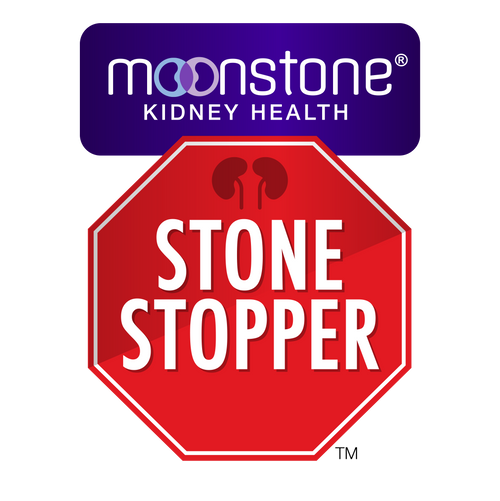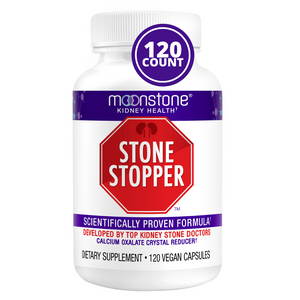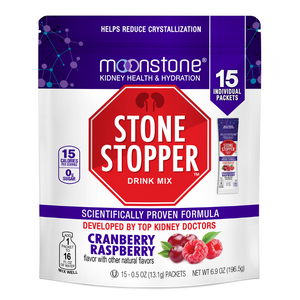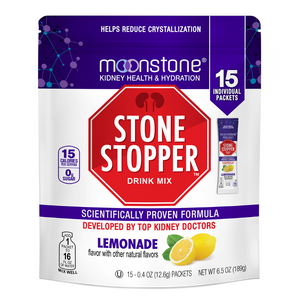
Dehydration Symptoms
In order to stay hydrated, first you should be aware of the common symptoms of dehydration:
- Urine that is darker in color
- Drinking water but not urinating
- Muscle cramps
- Dry mouth & bad breath
- Fatigue & drowsiness
- Fever or chills
- Craving sweets
- Fast heartbeat
- Irritability
- Confusion

The Importance of Hydration in Preventing Kidney Stones
- Men - about 15.5 cups (124 fl oz)
- Women - about 11.5 cups (92 fl oz)

Hydration Tips for Preventing Kidney Stones
Don't wait until you're thirsty to drink. Carry a water bottle with you and take sips regularly. You can also incorporate other beverages such as herbal tea or low-sugar sports drinks and diet sodas. Avoid alcohol and sugary drinks like regular soda and fruit juices. Studies have shown milk is the most hydrating fluid next to water.
Set alarms or notifications to remind you to drink frequently.
Drink room temperature water. We all love ice cold water, especially on a hot day, but the colder the water temperature the more energy your body expends to absorb the water. Icy water also causes blood vessels to slightly shrink in your stomach, which slows hydrations and digestion.
Make your water healthier & more fun! If plain water is boring to you, add flavor through fresh fruits or other sugar-free flavoring. You can also add natural electrolytes to balance pH levels & keep you hydrated, such as: coconut water, lime juice, pomegranate juice, grated ginger, and a pinch of sea salt or Himalayan pink salt.
Eat water-heavy foods. Certain fruits and vegetables not only contain healthy nutrients but a lot of water as well. Fruits - watermelon, strawberries, cantaloupe, peaches and pineapples
Vegetables - cucumbers, leafy greens, radishes, celery, zucchini and tomatoes
Bonus - start your day with overnight oats mixed with chia seeds. Not only will it provide plenty of nutrients and keep you full longer, both soak up liquid!
Hydration is Key!
Limit time outdoors in hot weather. Stay home or go to an air conditioned shopping center, movie theater, or public library. Avoid sun exposure especially during peak times (between 10am-3pm). If you do go outside, wear sunscreen and make sure to dress appropriately with light, loose-fitting clothing in lighter colors (dark colors absorb heat).
Warm up & cool down during exercise. Before and after working out, it's important to warm up and cool down. Doing this helps regulate body temperature, as well as reduce injuries.
Drink water before eating anything! Drink between meals throughout the day, as well as before you snack or eat a meal. It not only creates a healthy routine, it helps us realize that sometimes we are dehydrated instead of hungry.
Keep a bottle of water on your night stand. When you awake, drink a glass of water. Studies show people who did this (as well as drinking a glass within 2 hours of bedtime) increased their H2O intake 24 oz per day. It also helped people eat less, slow down their eating, and end up losing weight.
Get a friend involved! When someone else is helping keep you accountable, and you them, you're more likely to stick with it. Challenge a friend to join you in drinking more water throughout the day.







1 comment
Very expensive